(HNM) - Three-step verification and food sample storage are mandatory requirements for food service establishments and collective kitchens. However, through actual inspections by interdisciplinary inspection teams on food hygiene and safety in Hanoi , it is shown that, besides establishments that strictly comply with the above mandatory requirements, there are still places that do not fully comply with them.
Support food poisoning investigation
According to the regulations of the Ministry of Health , three-step food inspection and food sample storage are applied to food service establishments, including: Ready-to-eat meal processing establishments; food business canteens, collective kitchens; kitchens, restaurants of hotels, resorts; restaurants. For three-step food inspection, the first is to check the source of raw materials and food imported before processing; next is to check during the processing (including: Processing place, equipment, tools, processors) and finally check before eating (food display area, eating utensils) to ensure hygiene and food safety according to regulations. As for food sample storage, it is applied to all dishes of meals of 30 or more servings.
However, during the 2023 Food Safety Action Month, the Hanoi City Food Safety and Hygiene Interdisciplinary Inspection Team No. 1 directly inspected Maison Sen Buffet restaurant (275 Nguyen Trai, Thanh Xuan district). At the time of inspection, the restaurant stored food samples in violation of regulations on quantity and information recording. In addition, the three-step inspection book also did not comply with regulations. Similarly, an inspection of the kitchen of My Duc Primary and Secondary School (My Duc district), which provides about 400 meals/day, also showed that the school had not conducted daily kitchen supervision and did not have a book to track food sample storage.
The inspection team also noted that there were kitchens that strictly followed the regulations on three-step food inspection and food sample storage such as: Kitchen of Phuong Tu Kindergarten (Ung Hoa district); Nguyen Du Primary School (Nam Tu Liem district); Doan Khue Primary School (Long Bien district)...
Principal of Phuong Tu Kindergarten Nguyen Thi Nhung said that in order for children to have full health to play and study, the school always focuses on every step in food processing. For the food processing department, the school requires careful observation when receiving food, soaking and washing thoroughly before processing. The school's kitchen follows a one-way process, with the aim of ensuring hygiene and food safety, avoiding cross-contamination. Storing daily food samples in the kindergarten's semi-boarding kitchen is also a very important step. Therefore, before dividing food portions into classes and students, the school also pays great attention to the steps of storing food samples, sealing samples, etc.
“We regularly attend training courses on ensuring food safety and hygiene in school kitchens. In these training courses, experts give schools very specific instructions on storing food samples. That is, the person storing the sample needs to fully record the date, time, name of the person taking the food sample and seal it. In addition, experts also instruct schools that if food poisoning occurs, they must keep the food sample sealed and only open it when witnessed by the authorities,” said Principal Nguyen Thi Nhung.
According to Mr. Dang Thanh Phong, Head of the Hanoi Food Safety and Hygiene Department, the implementation of food sample storage greatly supports the process of collecting information and investigating when there is a suspicion of food poisoning, demonstrating the sense of responsibility as well as the transparency of the business establishment. Especially for collective kitchens and school kitchens, the storage of food samples is considered very important when an incident related to food safety occurs. At that time, the storage of food samples will be confiscated by the authorities and used for the stages of inspection and certification of the safety and hygiene of each finished raw material product.
Notes when storing food samples
Directly inspecting the food safety assurance work at food business establishments, Deputy Director of Hanoi Department of Health Vu Cao Cuong requested that in the entire food production chain from the time it is fresh to the time it is served on the table, just one step of error, no matter how small, can cause unfortunate consequences. Therefore, establishments that are required to comply with the regulations on food sample storage must comply to ensure food inspection and strict control of food safety.
To properly store food samples, the Food Safety Department (Ministry of Health) notes that each dish is taken and stored in a separate sample storage device and sealed. Food samples are taken before eating or before transporting to another location and are stored immediately after taking. The amount of food sample taken depends on each dish. Solid foods such as stir-fried, steamed, fried, boiled dishes or raw vegetables, fruits eaten immediately... are sampled at least 100 grams. Liquid foods such as soups, broths... are sampled at least 150 ml. Information about food samples is written on the label and fixed to the food sample storage device. Food sample storage devices must have tight lids and must be washed and sterilized before use.
Along with that, food samples are stored separately from other foods, the temperature for storing food samples is from 2°C to 8°C. The time for storing food samples is at least 24 hours from the time of taking the food sample. When there is a suspicion of food poisoning or a request from the management agency, the facility must not destroy the stored sample until further notice. After 24 hours of storing food samples, if there is no suspicion of food poisoning; there is no specific request from the management agency, the stored sample will be destroyed accordingly.
Source


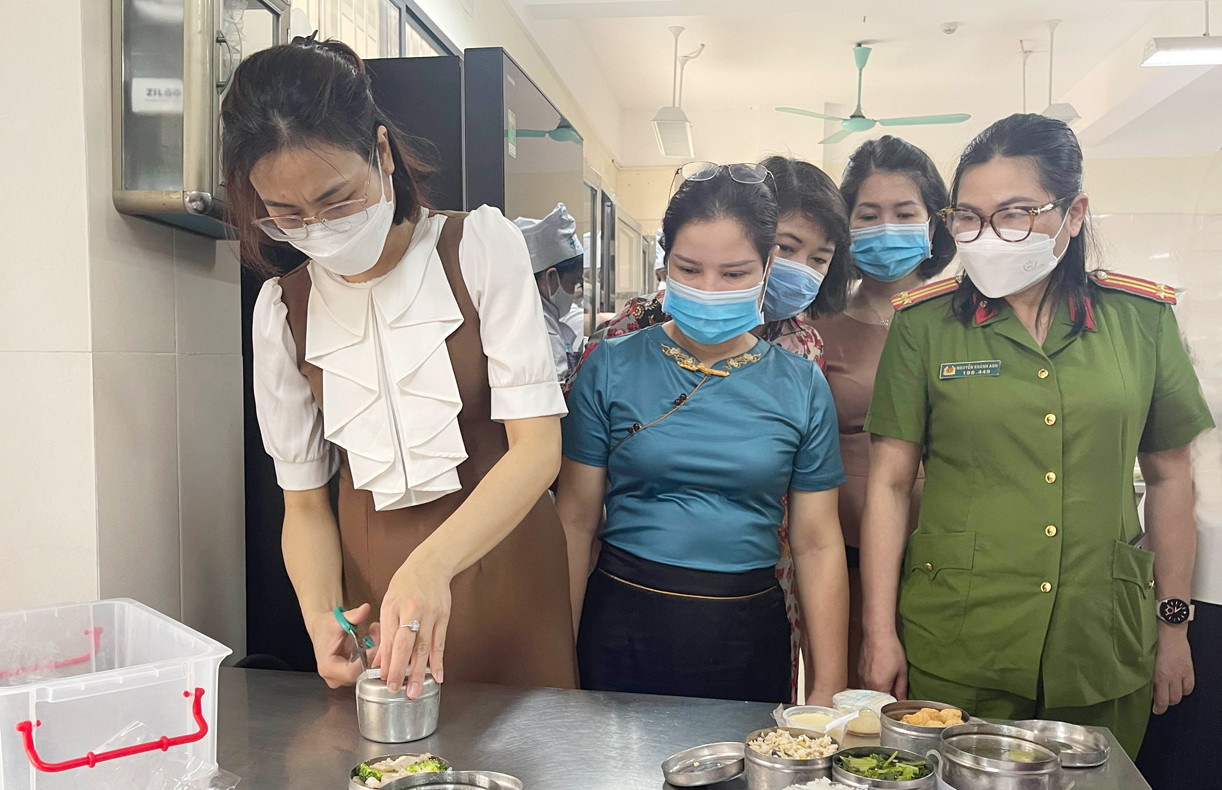

![[Photo] Students of Binh Minh Primary School enjoy the full moon festival, receiving the joys of childhood](https://vphoto.vietnam.vn/thumb/1200x675/vietnam/resource/IMAGE/2025/10/3/8cf8abef22fe4471be400a818912cb85)
![[Photo] Prime Minister Pham Minh Chinh chairs meeting to deploy overcoming consequences of storm No. 10](https://vphoto.vietnam.vn/thumb/1200x675/vietnam/resource/IMAGE/2025/10/3/544f420dcc844463898fcbef46247d16)





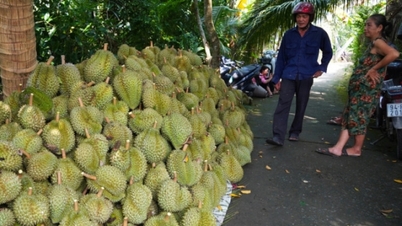






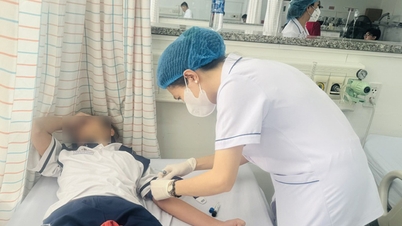










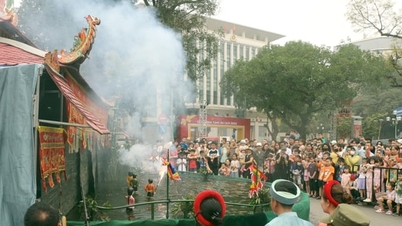

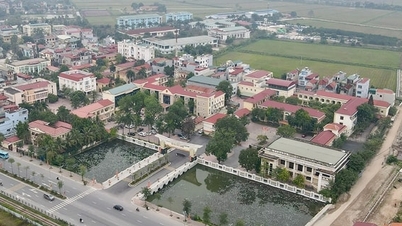


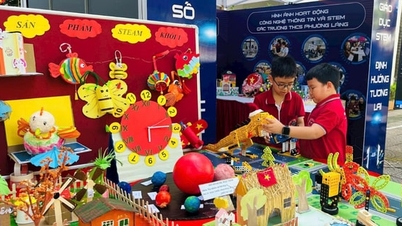


















































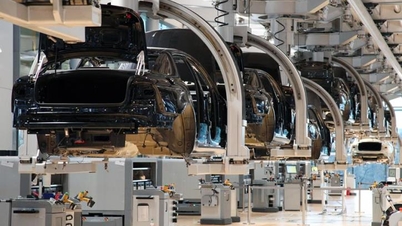





















Comment (0)